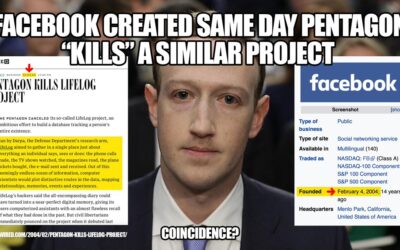 “Why I Hate Android”
“Why I Hate Android”
Why do I hate Android? It’s definitely one of the questions I get asked most often these days. And most of those that don’t ask probably assume it’s because I’m an iPhone guy. People see negative take after negative take about the operating system and label me as “unreasonable” or “biased” or worse.
I should probably explain.
Believe it or not, I actually don’t hate Android. That is to say, I don’t hate the concept of Android — in fact, at one point, I loved it. What I hate is what Android has become. And more specifically, what Google has done with Android.
Let’s turn back the clock. In 2006, the mobile landscape in the United States was almost unfathomably shitty. Motorola’s RAZR had been the top-selling device for something ridiculous like five straight years — and the only thing that didn’t suck about it was its physical size. The carriers completely controlled the industry. This cannot be overstated.
Then on January 9, 2007 — exactly 5 years ago today — Steve Jobs took the stage at Macworld to unveil the iPhone. Six months later it was released. While some laughed it off at the time, the mobile landscape completely changed.
Apple and Google were great allies at the time. They united over a common enemy: Microsoft. Then-Google CEO Eric Schmidt was even on Apple’s board of directors. Google was a huge part of original iPhone OS (before it was called iOS): Google Maps, YouTube, Google Search, etc. Apple could have launched the iPhone without Google, but it wouldn’t have been as good. And if they had to do something like build their own maps from scratch, it would have taken longer.
A few months later, on November 5, 2007, Google teamed up with many of the big players in the mobile/telecom space to announce the Open Handset Alliance. At the time it sounded promising, but perhaps it should have been the first warning sign. The first product of this partnership: Android. A beta was released, but it would take almost another year before the software was actually ready to go.
The initial Android prototypes looked a lot like BlackBerry devices (both in hardware and software). But the first device (the G1) and OS actually released was more of a cross between a T-Mobile Sidekick (which Android head Andy Rubin helped create while still a co-founder at Danger) and the iPhone OS.
In hindsight, Steve Jobs was clearly not happy about this and the subsequent iPhone-ification of Android. But great artists steal, etc, etc. The only thing I didn’t like about Android at the time was that it was a shitty copy of the iPhone. It was something you couldn’t pay me to use. And most people seemed to feel the same way.
Jobs probably didn’t say much at the time because he didn’t have to. The market was saying it.
Time went on and it was pretty clear that despite the major players involved in the OHA, Android wasn’t getting a lot of traction. Meanwhile, the iPhone, after a price-cut and addition of 3G technology, was soaring. So Google did the logical thing, they went to see Verizon, the largest U.S. carrier, and struck a deal.
Remember, Apple still had an agreement with AT&T for exclusive iPhone rights in the U.S. at the time. Verizon and Google needed each other. But Google clearly needed Verizon more. This was the first real problem. A deal with the devil was struck.
Let’s back up for a second.
Even before Android’s launch, Google clearly had big dreams for the mobile space. “Your mobile phone should be free,” Eric Schmidt told Reuters in late 2006. He envisioned a world in which consumers didn’t have to pay for their mobile phones — advertising (served by Google, naturally) would subsidize the cost. And we’re not talking “free” with a two-year carrier contract. We’re talking free free.
In the pre-iPhone world this may have sounded like crazy-talk. But remember, as an Apple board member and having purchased Android for Google in 2005, Schmidt knew what was coming down the pipe. He absolutely intended to disrupt the mobile market.
But again, the initial releases of Android simply didn’t have the traction needed to come close to fulfilling Schmidt’s (and Google’s) dream. So deals with the carriers had to be made.
Still, Google hung on to the hope of a free phone. That phone was called the Nexus One.
At an event in January of 2010, Google unveiled their plan for Nexus One — the first real “Google Phone” as it were. While they were cautious and cagey with some details, the goal seemed clear: Google intended to blow up the carrier market (in the U.S. first) by moving phone distribution online, flattening it in the process. The idea was that you’d go to a website and pick the phone you wanted, then pick the carrier you wanted, pay, and you’d be done.
Think about this for a second. Instead of going to the store of a single carrier and having a dozen shitty phones shoved in your face by salespeople that made commission, you’d be in total control of the process. The end result of consumers getting to choose their carriers (and phones and plans) was clear: major competition and subsequently a rush of better deals from said carriers to ensure customer activation and retention.
Or, you could buy whatever phone you wanted unlocked. Eventually, pay-as-you-go SIM cards would pop up in the U.S. as a result.
This was to be the dawn of the golden age of mobile in this country. As I wrote at the time: Apple And Google Just Tag Teamed The U.S. Carriers. I loved it.
But it was never meant to be.
What should have been obvious at the time but for whatever reason wasn’t (maybe because carrier representatives were at the event), the carriers hated this plan. And for good reason — it was going to turn them into dumb pipes that competed on price. There was no way they were going to let this fly, and they didn’t. Within a few months, citing weak sales of the Nexus One, Google scrapped their ambitious website and instead got fully in bed with the carriers.
But there was more.
What no one knew at the time, and I only heard months later, was Google’s original vision for the Nexus One. Google intended to sell it for $99 without a contract and unlocked. Yes, a $99 unlocked phone, subsidized by Google ads.
But the plan had one little problem: Google didn’t operate their own cellular network. They needed Verizon or AT&T or Sprint or T-Mobile to help them out. Google probably thought their open spectrum deal “win” in early 2008 gave them the leverage they needed here. Sadly, it did not.
All of the carriers laughed in Google’s face when presented with the ambitious Nexus One plan. And given that Google had just signed the all-important deal with Verizon, it was never going to happen.
So instead, at the Nexus One launch we got a website where you could indeed buy an unlocked Android phone — for $529. Nonstarter.
Better yet, while they said they were committed at the time, Verizon and Sprint never even got around to supporting the Nexus One at all. That’s how much they were behind the project.
To complicate matters further, behind the scenes, Verizon and Google were arguing over Net Neutrality rules. Verizon was opposed, Google was in favor. Then a funny thing happened. Google started supporting Verizon’s viewpoint on the matter! If you’re looking for the first post where I’m really, truly, pissed off at Google, look no further.
It. Was. Total. Fucking. Bullshit.
A few months later, guess what happened? Thanks to the Google/Verizon alliance on the matter, the FCC decided the compromised vision of Net Neutrality was just fine also. To be clear: Net Neutrality was thrown out in the wireless space because Google sided with Verizon’s ridiculous and horribly conflicted stance on the matter.
The open spectrum enemy, turned Net Neutrality enemy, became Google’s bedmate thanks to a business deal. Straight up. Greed, for lack of a better word, is good.
We got all of this thanks to Google’s desire for Android to take over the world. I commented earlier that they signed a deal with the devil — I wasn’t being facetious. They actually did! And they got away with it!
I think about these things everyday that I see positive news about Android. It’s so wonderful that the platform which helped cripple Net Neutrality and is keeping the evil carriers in control is taking off. Make no mistake: Android is now the carriers’ best friend.
Because Google sloppily decided to do the Motorola deal (driven by the full-on patent war, for which Apple and Microsoft, and not Google, are largely to blame), and because the model isn’t great for all but the biggest player, now the OEMs may be our best hope against the carrier/Android alliance.
Eventually, many of them will try to do their own thing (perhaps even using Android as a base) because they’re not idiots, they see where the real money is: controlling the entire experience. Like Apple.
All of this backstory knowledge fuels my rage. When I see Google talk about how “open” the platform is, setting it up as the foil to the “closed” (and framed as “evil”) iPhone, I want to scream and rip someone’s head off. It’s not only the most extreme example of being disingenuous that I can ever recall seeing — it’s nuclear bullshit.
Apple, for all the shit they get for being “closed” and “evil”, has actually done far more to wrestle control back from the carriers and put it into the hands of consumers. Google set off to help in this goal, then stabbed us all in the back and went the complete other way, to the side of the carriers. And because they smiled the entire time they were doing it and fed us this “open” bullshit, we thanked them for it. We’re still thanking them for it!
When you think about it in the context of this election season we’re entering, it’s a brilliant political maneuver that Google has pulled off with Android. They’ve taken something they’ve done that’s actually bad for us and spun it in such a way that most people actually buy into it being good for us.
And for the carriers, Android is the best thing ever because it’s the new “opiate for the masses”. Everything shitty they’re doing is great because they’re doing it with Android — at least it’s not iOS. What a load of horseshit.
I realize that the Android team at Google has a lot of good people doing great work. I know some of them. I respect them. But I cannot respect their decision to continue to work on this platform that perpetuates our imprisonment. I have to believe most simply chose not to think about these things. But they should. They really should.
There’s no denying that there are upsides to open — a lot of them. But in the case of Android, “open” has been hijacked and wildly contorted so as to mask the shady side of what’s really been going on. And it’s working.
So that, ladies and gentleman, is why I hate Android. It has nothing to do with the actual product (which continues to improve every year and is quite good now). It has to do with a promise that was broken and swept under the rug.
As crazy as it may sound to some of you, beyond a full OEM revolt (which could ultimately benefit the carriers as well), our hope now lies with Apple and Microsoft.
Apple, because they put the consumer first and have proven time and time again that they will not bend to carrier bullshit and will often work against them behind the scenes. And they control the all-important Apple stores for distribution (and, of course, the App Store).
Microsoft, because they have a model (many handsets on all carriers) that can potentially scale better than Apple’s can while still giving control (mostly) to the users. And they have Nokia on board with their plan. And they have intersections with products like Xbox. (Though it may be too late in the U.S.)
Perhaps more people will relate to this: I hate Android for the same reason that Severus Snape hates Harry Potter — the very sight reminds me of something so beautiful, that was taken. Except it’s worse. It’s as if Harry Potter has grown up to become Voldemort.



